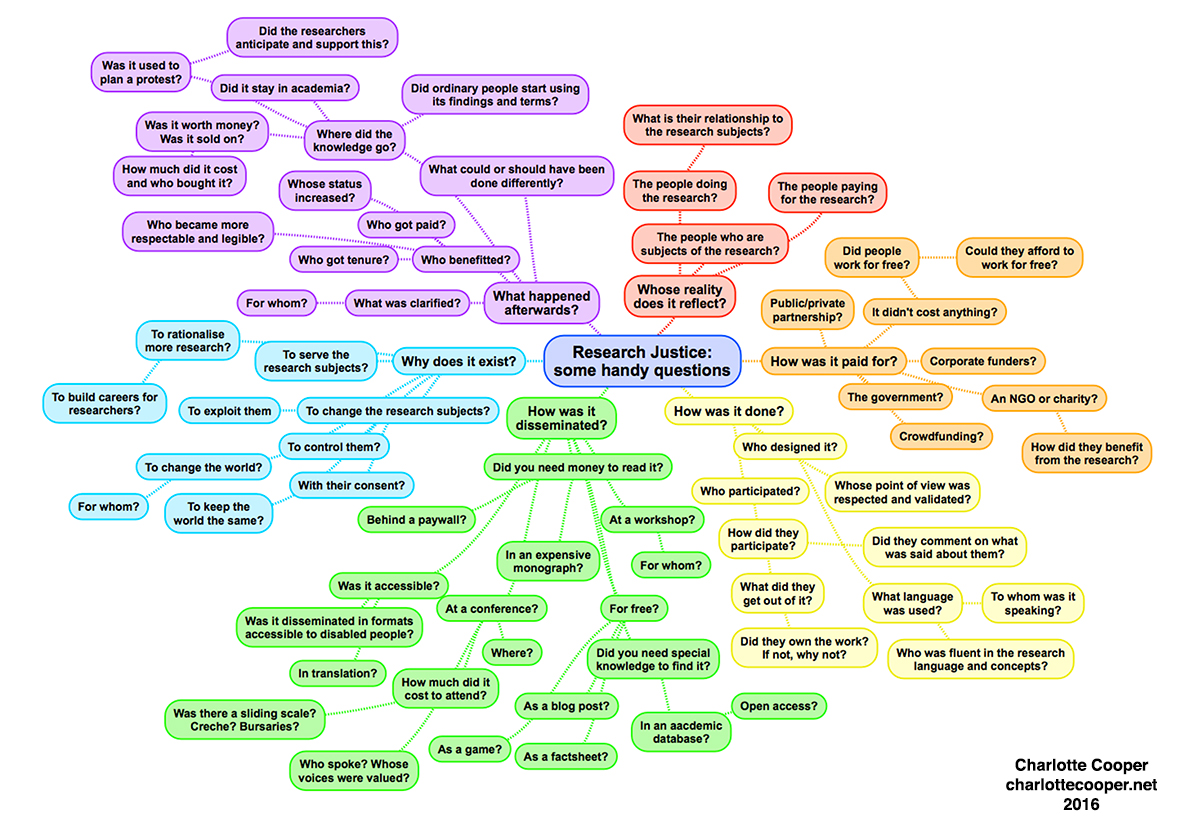
Reflecting on your work:
Your research does not exist in a vacuum. What you are doing, why you’re doing it, how you’re doing it, who you’re doing it with and how you share your work are shaped by a whole host of different conditions and restrictions. These could range from economic conditions that restrict the scope of your study to emotional conditions that shape the methodology you use.
Thinking about how and why you have or have not done something in your research is part of being an ethical and engaged practitioner. Reflecting on your research process can help identify, acknowledge and do something about the limitations of your work.
Reflecting on your experiences can help put into practice a way of continued learning that can help transform oppressions and inequalities.

Following the work of pioneering educator, Paulo Freire, learning for transformation is achieved through “reflection and action upon the world in order to transform it”.
Freire understood this praxis to be a collective effort to think our experiences and to implement actions to change things.
In addition to helping realise and sustain a culture of partnership working for social justice, reflective practice can help gather data about processes and performance as part of evaluations and continued improvement.
How do I do it?
Reflective practice can take time. Remember to factor in time to reflect on how you are working throughout your research cycle.
Because reflective practice involves thinking about and learning from your experiences in order to act differently, some of the techniques you can use involve different ways of expressing your thoughts and feelings:
 |
Writing: keeping journals and diaries and developing reflective writing. Jenny Moon’s really useful techniques can help you move from writing to inform to writing as reflection. | |
| Creativity: sketches, pictures, photographs, collage, mindmaps, can help you reflect on your work in different ways. | ||
| Participatory research: using participatory research methods can help you embed reflective practice into your research | ||
| Dialogue: engage in ongoing dialogue with others – in groups, face-to-face or on social media through Twitter, blogs or online communities. |
What does reflective practice look like?
| At BU we did a reflective evaluation of a core student service BU, GROW@BU. Through the use of arts-based activity and structured interviews, we worked with students and members of the Student Engagement Team to explore personal and professional changes. One of our findings was that students found taking part in creative and reflective activity therapeutic as they felt heard and their voices valued. |
 |
|
 |
||
| Another research project that is embedded with reflective practice is My Voice, My Story. This project is part of the ESRC Festival of Social Science and involves a group of six student co-researchers using photography and storytelling to capture their lived experiences of being non-traditional students at university. | ||
Resources to help you:
Professor Christina Hughes has developed a series of research resources which outline key texts and ideas for embedding reflective practice into your research.
Southampton Solent University have developed a tool to help with reflective writing and thinking that includes an outline of the different ways of framing reflective practice.
As part of framework for enhancing retention and student success, the HEA have produced a series of reflective questions to be used as discussion and developmental prompts as well as for individual reflection
The Southern Policy Law Center has a series of teaching resources on building tolerance that includes opening up discussions about racism and white privilege
Notes and ideas from an Open University course about being a reflective practitioner in education can be accessed here.
Dr Charlotte Cooper has designed a fantastic mind map of handy questions to help people undertake more socially just research.



